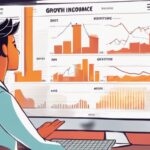What Impact Does Dollar-Cost Averaging Have On Your Passive Income Strategy?
Passive Income strategies can be significantly impacted by implementing dollar-cost averaging techniques. This investment strategy involves regularly investing a fixed amount of money regardless of market conditions. By consistently purchasing investments over time, investors can potentially lower the average cost per share and reduce the impact of market volatility on their portfolio. Understanding how dollar-cost averaging can affect your passive income strategy is vital for long-term financial success.
Understanding Dollar-Cost Averaging
Definition and Basic Principles
One of the fundamental strategies used by investors to mitigate market volatility is dollar-cost averaging. This method involves investing a fixed amount of money at regular intervals, regardless of market conditions. By consistently buying investments over time, investors reduce the impact of short-term fluctuations on their overall portfolio.
Mechanics and Process of Implementation
Dollar-Cost Averaging involves setting up an automatic investment plan where a specific amount of money is invested at predetermined intervals, such as weekly or monthly. To implement this strategy effectively, investors need to stick to their predetermined investment schedule regardless of market movements. This ensures that more shares are purchased when prices are low and fewer when prices are high, ultimately lowering the average cost per share over time.

Role of Dollar-Cost Averaging in Passive Income Strategies
Enhancing Investment Safety
It is necessary for passive income strategies to prioritize investment safety. For long-term investors, dollar-cost averaging can help mitigate the risk of market timing and reduce the impact of sudden market downturns on your overall investment portfolio.
Smoothing Out Market Volatility Effects
Enhancing investment safety includes strategies to minimize the impact of market volatility. For passive income seekers, dollar-cost averaging can spread out the cost of investments over time, reducing the effect of price fluctuations and potentially increasing returns in the long run.
Role of dollar-cost averaging lies in its ability to provide a disciplined approach to investing, helping investors stay focused on their long-term financial goals while minimizing the impact of market uncertainty on their passive income strategies.
Comparison to Other Investment Strategies
Little compares to the disciplined approach of dollar-cost averaging when it comes to passive income strategies. Let’s take a look at how it stacks up against other popular investment methods.
| Investment Strategy | Comparison to Dollar-Cost Averaging |
| Lump-Sum Investing | Any sudden market fluctuations can significantly impact your returns with lump-sum investing, unlike the consistent approach of dollar-cost averaging. |
| Value Averaging | An automatic approach to buying more shares when prices are low and fewer shares when prices are high, value averaging complements dollar-cost averaging for long-term wealth building. |
Lump-Sum Investing
Any sudden market fluctuations can significantly impact your returns with lump-sum investing. Unlike the consistent approach of dollar-cost averaging where you spread out your investments over time, lump-sum investing exposes you to the risk of timing the market wrong.
Value Averaging
To enhance your passive income strategy, you can combine value averaging with dollar-cost averaging. Value averaging involves adjusting your investment amounts based on the performance of your portfolio, buying more units when prices are low and fewer when they are high. This strategy can help maximize returns over time by taking advantage of market fluctuations.
Optimizing Your Strategy
Time Intervals and Investment Amounts
Many investors wonder about the optimal time intervals and investment amounts when implementing a dollar-cost averaging strategy. An investor can choose to invest weekly, monthly, or quarterly, depending on their financial goals and risk tolerance. Additionally, the amount invested can vary, allowing investors to adjust their strategy based on market conditions and personal preferences.
Assessing Performance and Making Adjustments
Performance evaluation is crucial in refining a dollar-cost averaging strategy. Investors should regularly assess the performance of their investments by comparing them to relevant benchmarks and tracking progress towards their financial goals. If performance deviates significantly from expectations, adjustments may be necessary to optimize the strategy and maximize returns over time.
To ensure the effectiveness of the dollar-cost averaging strategy, investors must stay vigilant and proactive in monitoring performance and making necessary adjustments. Consistent evaluation and tweaking based on market conditions and individual financial objectives can help investors stay on track and make the most of their passive income strategy.
Final Words
Upon reflecting on the impact of dollar-cost averaging on your passive income strategy, it is clear that this method can be a powerful tool for long-term wealth accumulation. By consistently investing a fixed amount of money at regular intervals, you can lower the risk of market timing and potentially increase your returns over time. This disciplined approach to investing can help you achieve your financial goals and build a steady stream of passive income in the future.
FAQ
Q: What is Dollar-Cost Averaging (DCA)?
A: Dollar-Cost Averaging is an investment strategy where an investor divides up the total amount to be invested across periodic purchases of a target asset to reduce the impact of volatility on the overall purchase price.
Q: How does Dollar-Cost Averaging work?
A: With Dollar-Cost Averaging, you invest a fixed amount of money at regular intervals, regardless of the asset’s price. This approach can help smooth out market fluctuations and reduce the risk of making poor investment decisions based on short-term price movements.
Q: What impact does Dollar-Cost Averaging have on passive income?
A: Dollar-Cost Averaging can help enhance your passive income strategy by spreading out your investments over time, potentially reducing the impact of market volatility on your overall returns while allowing you to benefit from the power of compounding.
Q: How does Dollar-Cost Averaging benefit passive income investors?
A: By consistently investing a fixed amount over time, passive income investors can benefit from lower average purchase prices during market downturns and higher average selling prices during market upturns, ultimately leading to potential long-term gains.
Q: Is Dollar-Cost Averaging a suitable strategy for passive income seekers?
A: Yes, Dollar-Cost Averaging is a suitable strategy for passive income seekers as it provides a disciplined approach to investing, helps reduce the impact of emotional decision-making, and can lead to a more stable income stream over time.
Q: What are the risks associated with Dollar-Cost Averaging in a passive income strategy?
A: While Dollar-Cost Averaging can help mitigate the risk of timing the market, there is still a risk of investing in assets that may not perform well in the long run. It’s necessary to conduct thorough research and diversify your investments to minimize potential risks.
Q: How can one implement Dollar-Cost Averaging in their passive income strategy?
A: To implement Dollar-Cost Averaging in your passive income strategy, you can set up automatic investments at regular intervals into income-producing assets such as dividend-paying stocks, bonds, real estate investment trusts (REITs), or exchange-traded funds (ETFs) to build a diversified portfolio over time.
![]()













